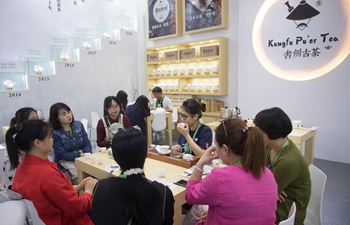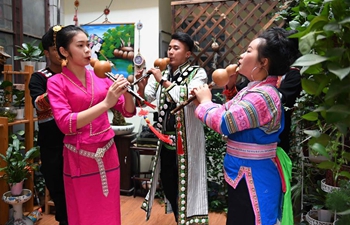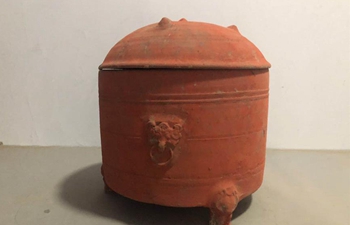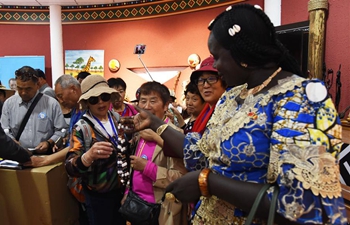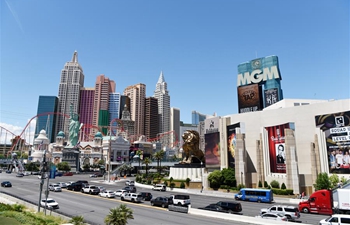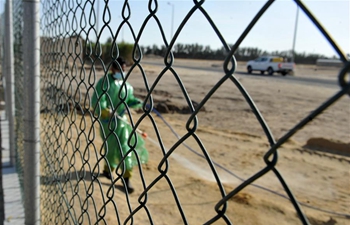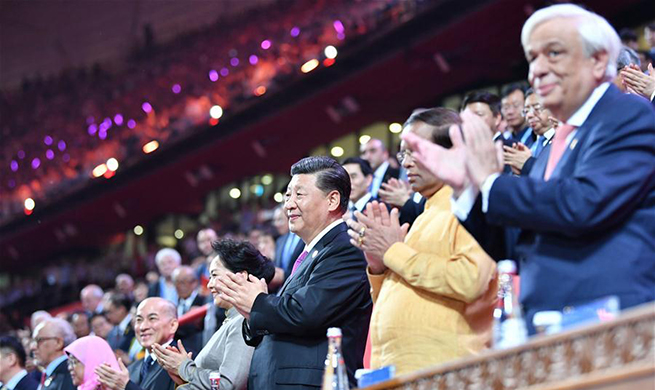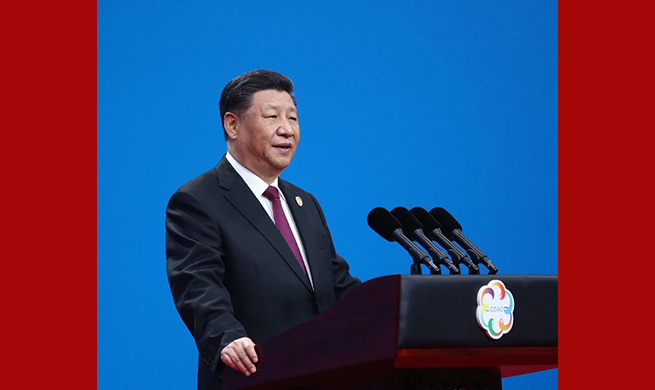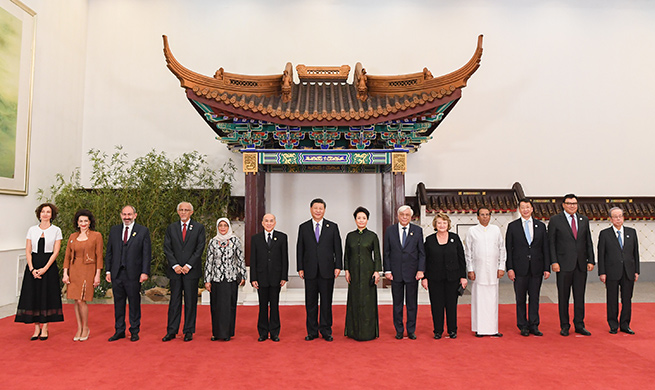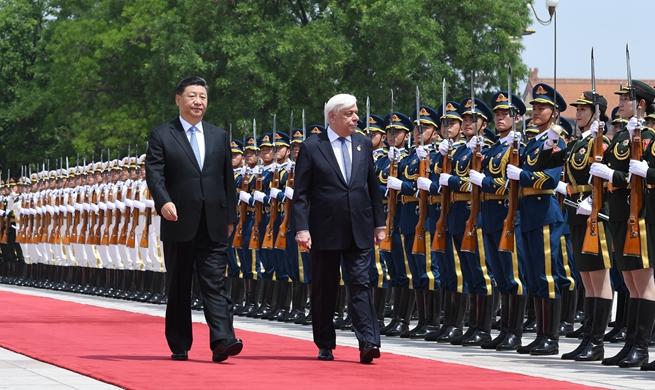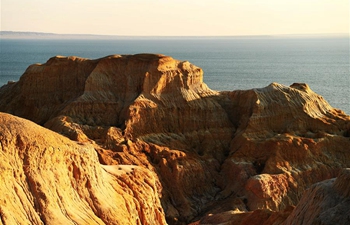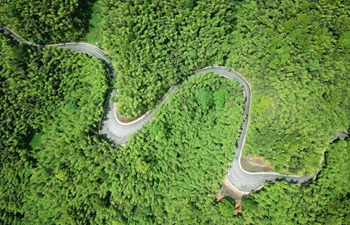CANBERRA, May 16 (Xinhua) -- With the polling day of Australia's federal election approaching, many people chose to vote before May 18.
Christine Mason, 67, voted on Tuesday in Belconnon of the Australian Capital Territory, because she would be away and look after her father during the weekend.
Talking about her top interest while making her choice, she said "it is time for Australia to take a stronger sense on climate change."
Mason worked in the Australian Bureau of Statistics before her retirement and she also talked about overseas aid. "I feel strongly that people who are more vulnerable need help from Australia," she said.
Jude Fry also cast her vote on the day. The 54-year-old worked in a school and education was important for her. "Especially for the under-privileged," she said.
Jarrod Hyde, 24, was a bar tender. He said the government cut the penalty rate, which was "probably not a smart choice." "Penalty rates are in place because they understood that Saturday and Sunday are holidays and most people would take off," he said. "It was like a kick in the teeth, having your government say that we don't value that much."
He also put immigration as priority while making decision. "To me it seems like we always welcome people to this country, giving people a fresh beginning. That definitely reflected how I voted," he said.
According to the Australian Electoral Commission, early voting for the federal election commenced from April 29. As of March 31, the country, with a population of about 25 million, has more than 16 million electors on the roll.
Paul Thompson, 66, was a volunteer at the Belconnon voting center. "To me my personal concern is about homelessness and affordable housing, because I work for social welfare. So I want to see government care about people," he said.
With introduction of candidates seen everywhere in Canberra, volunteers like Thompson were making last-minute attempt to gain support from voters for different parties.
On Wednesday, Albert White was handing out flyer of candidate introduction outside the Old Parliament House at the center of Canberra.
"The top priority is climate change and wage justice," the 74-year-old retired nurse said.
"We have the situation where the rich is becoming richer while the poor people, the ordinary people have had no pay raise for about six or seven years. Australians need wage raises and they need it now," White said.
Another volunteer, 64-year-old Yvette Gilroy, had different preference.
"My main concern is we have a sensible policy agenda which is practical and actually maintaining economic health in the nation," she said. "The prerequisite is maintaining economic stability and strength."
She thought the last government had an uphill battle to pay off the debt by predecessors. Self employed with a small business, she said "They (the last government) have very good policy for promoting small business."
Australian Prime Minister Scott Morrison, leader of the Liberal National Party Coalition (LNP), has built his re-election campaign on a message of economic stability, promising fiscal responsibility that will deliver the first budget surplus in a decade and make way for tax cuts across the board.
Australian Labor Party leader Bill Shorten has, by contrast, made election pledges worth 60 billion Australian dollars (41.5 billion U.S. dollars) that he plans to fund by taxing the wealthy, especially the well-off retired.
Climate policy is another significant point of difference between the two major parties, with the LNP failing to announce an alternative plan beyond Australia's existing international emissions reduction targets.
According to the latest Newspoll, one of the nation's leading opinion polls, released on Sunday night, Labor leads the LNP 51-49 on two-party preferred terms. The LNP has been slowly making up ground on the Labor in opinion polls, coming back from a 56-44 deficit when Malcolm Turnbull was deposed as prime minister and Morrison installed as his successor in August 2018.
